Best WiFi Router Brands in 2025 [Ranked & Reviewed]

The performance of a network depends a lot on the quality of a WiFi router. Based on my research and calculations, it is clear that buying your own modem and router is more beneficial than renting it from a service provider.
However, there are multiple router manufacturers available, which makes it difficult to choose one. Not anymore as I shall review the top 7 brands, highlighting their suitability, strengths, and flaws.
7 Best Router Brands of 2025
Whether you are looking for fast speeds, extensive coverage, or advanced features, these brands have proven their worth in delivering an excellent overall experience.
1. NETGEAR
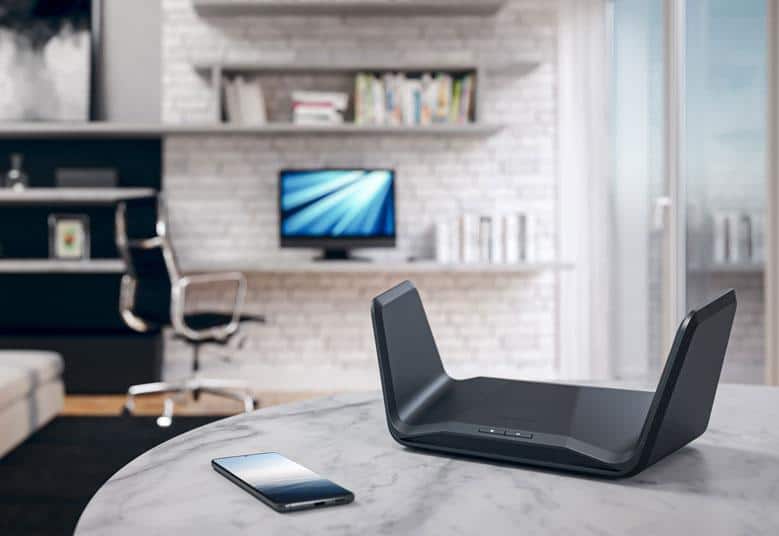
NETGEAR was founded back in 1996 by Patrick Lo and Mark Merrill. It is popular for producing high-performance routers with reliable connectivity, making it a preferred choice for both home and business use.
Their Nighthawk series offers fast speeds, while Orbi provides a seamless mesh network. They have a long-standing reputation for delivering premium networking solutions.
Netgear offers a range of router series, which includes:
- Nighthawk Series: Targeting gaming and high-bandwidth applications
- Orbi Series: Targeting mesh networking for large homes
- Armor Series: With built-in advanced security features
- Nighthawk Pro Gaming: Aimed at serious gamers seeking low-latency gameplay and high-quality live streaming.
Achievements and Innovations:
- Netgear was the first company to release a Wi-Fi 6 router.
- The Nighthawk routers are consistently ranked among the best options.
Pricing & Value:
Netgear routers usually range in price from around $80 to $500. Yes, they are often priced at a premium compared to some competitors. However, they offer good value for users seeking reliable performance and advanced features.
Customer Support:
Netgear provides 24/7 customer support, including online resources, community forums, and phone support for registered products.
P.S. Take a look at some of the best Netgear routers on the market.
Pros
- Wide range of options
- Highly reliable performance
- Decent wireless range
- Excellent customer service
- Easy to set up and manage
Cons
- Usually expensive
- Paid advanced security
2. TP-Link
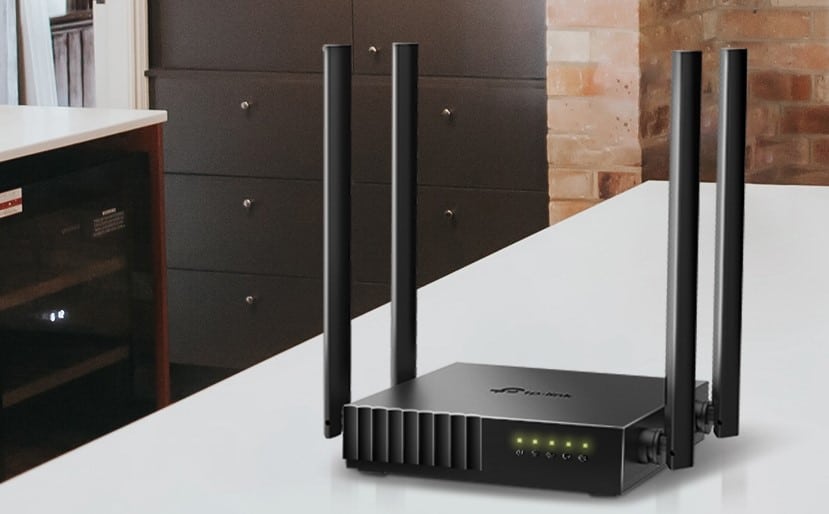
TP-Link was founded in 1996 by two brothers, Zhao Jianjun and Zhao Jiaxing. It is known for offering high-quality routers (comparable to Netgear and Linksys) at more affordable prices. Their prime focus is providing its users a great value for money.
With user-friendly interfaces, their Archer series and Deco mesh systems cater to a wide audience.
Product Lineup:
- Archer Series: This series has offerings in every price segment. The higher the price, the better features and performance.
- Deco Series: Mesh Wi-Fi systems for large homes and commercial settings.
- Talon Series: One of the first routers supporting 802.11ad technology for best-in-class wireless speeds.
Achievements and Innovations:
- TP-Link was the first company to release a router with lifetime free security.
- TP-Link introduced the world’s first WiFi 7 mesh system, Deco BE85.
- One version of the Google OnHub residential router was made by TP-Link.
- TP-Link Archer AXE300 is one of the few Quad-Band routers on the market.
Pricing & Value:
TP-Link’s WiFi routers generally range in price from around $60 to $400. They offer decent performance and solid value for budget buyers who prioritize cost-effectiveness and don’t want to compromise on features and performance.
Customer Support:
TP-Link offers decent customer support through its website, including downloads, FAQs, and live chat assistance. Check out the best TP-Link routers available.
Pros
- Affordable prices
- Great performance
- Long WiFi range
- Free security features
- Large portfolio
Cons
- No major issue I can think of
3. ASUS
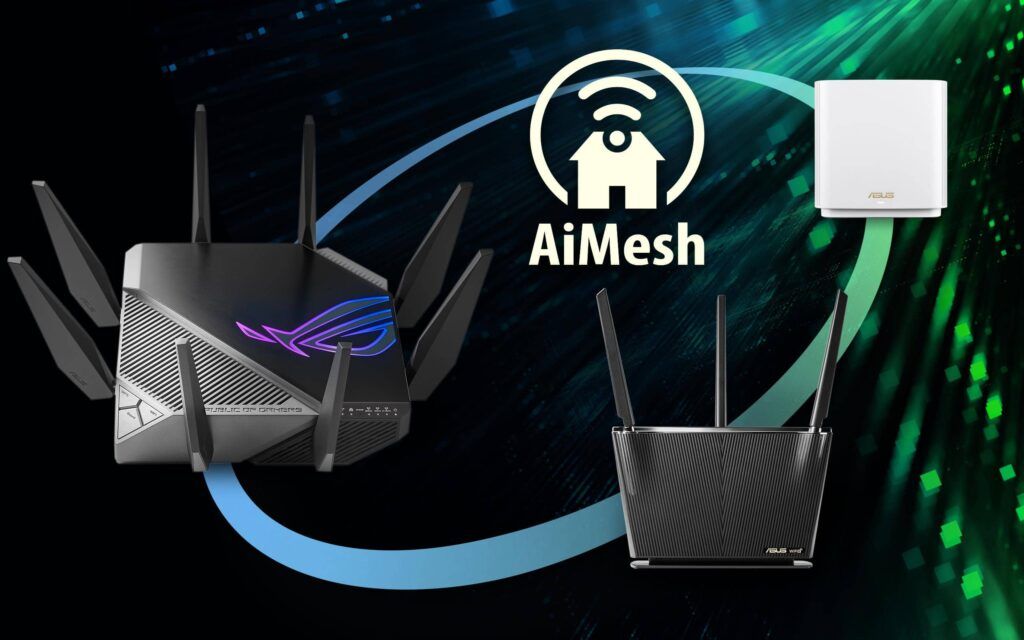
ASUS was founded in 1989 by Ted Hsu, Wayne Hsieh, T.H. Tung, and M.T. Liao. It is popular for producing high-quality routers for gaming and standard use. Their routers offer a longer range than the competition.
Further, the ROG series targets gamers, incorporating cutting-edge technology and impressive performance.
Another aspect that stands ASUS apart from other brands is the inclusion of lifetime free advanced security features. While Netgear and Eero charge about $100 for Netgear Armor and Eero Plus subscriptions.
Product Lines:
- ROG Strix Series: High-end routers for gamers and power users.
- ZenWiFi Series: Mesh Wi-Fi systems for large homes and corporations.
- RT-AX Series: Wi-Fi 6 routers for high-speed performance.
- TUF Gaming Series: Routers for gamers and budget-minded users.
Achievements and Innovations:
- ASUS has been recognized for its focus on gaming routers.
- ASUS’s ROG Strix routers are consistently ranked among the best.
Pricing & Value:
ASUS routers are competitively priced, offering great value for enthusiasts seeking top-notch performance. They generally range in price from around $60 to $500.
Customer Support:
ASUS provides 24/7 customer support through its website, including product manuals, FAQs, and direct contact for technical assistance.
For further information, take a look at the best ASUS routers available in the market.
Pros
- Wide range of options
- Top-notch wireless performance
- Gaming-specific optimizations
- Lifetime free advanced security
- Offers longer WiFi range
- Reasonable pricing
- Robust build quality
Cons
- No major cons
4. Linksys
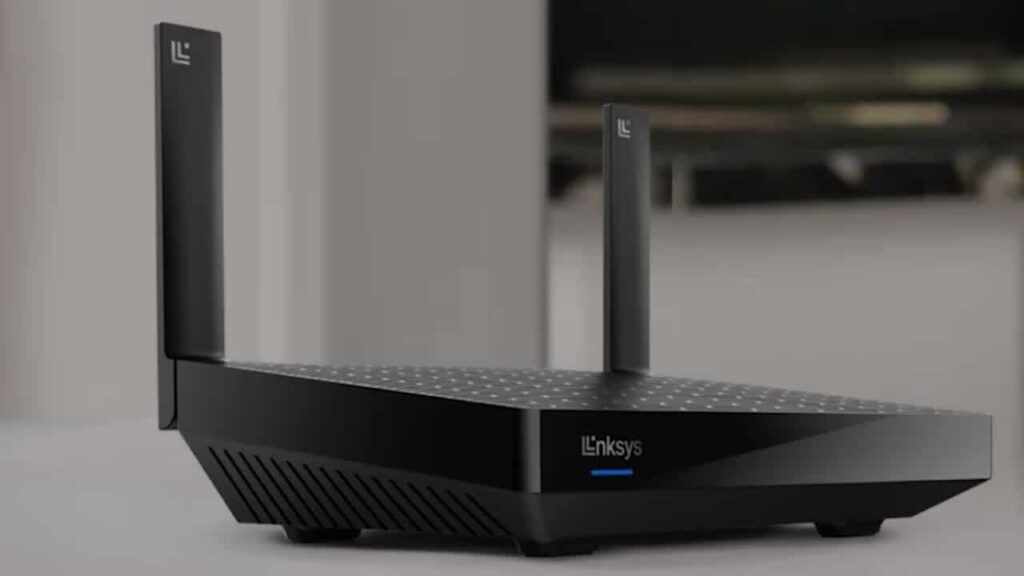
Linksys is one of the oldest networking equipment manufacturers. It was founded in 1988 by Victor Tsao and Janie Tsao. It’s known for its reliable and easy-to-use devices, establishing a strong reputation in the consumer networking market.
Their Velop mesh systems, Max-Stream series, and WRT models offer solutions for various user needs. Here’s a breakdown of their lineup:
- Velop Series: Mesh Wi-Fi systems for homes with large square footage.
- Max-Stream Series: Wi-Fi 6 routers for high-speed performance.
- WRT Series: High-performance routers for everyday use.
- Hydra Series: A brand new line of routers that comes with the latest features at a reasonable price.
Achievements and Innovations:
- Linksys was one of the first companies to launch a Wi-Fi router.
- Velop mesh Wi-Fi systems are among the few to support Apple HomeKit.
- Linksys also offers open-source routers
- Certain models are compatible with third-party router firmware such as DD-WRT, OpenWRT, and Tomato.
Pricing & Value:
Linksys routers are generally priced higher, but the ones that are designed for power users. Nevertheless, the new Hydra series and a few Wi-Fi 5 models are more affordable and start as low as $50.
Customer Support:
Linksys provides customer support through calls, its website, offering setup guides, troubleshooting resources, and a support community. For more details. check out my recommendations on the best Linksys routers.
Pros
- User-friendly interfaces
- Reliable performance
- A wide range of choices
- Supports third-party firmware
Cons
- Limited advanced features
- Some models can be expensive
5. Google

Google, the parent company of Nest (formerly Google Nest), was founded in 1998 by Larry Page and Sergey Brin. They are popular for their seamless integration with Google services and the Google Home ecosystem, making them ideal for smart homes.
Their user-friendly setup, white minimal design, and easy management through the Home app add to their appeal.
Product Lines:
- Nest WiFi: Mesh Wi-Fi systems for homes with large square footage.
- Nest WiFi Point: Wi-Fi extenders for the Nest WiFi system.
Achievements and Innovations:
- Google Nest routers are known for their simple setup and management through the Google Home app, making them user-friendly for all skill levels.
- Google’s Nest WiFi systems are consistently ranked among the best mesh Wi-Fi systems on the market.
Pricing & Value:
Google Nest routers are competitively priced, and their integration with Google services adds value for users invested in the Google ecosystem. They are generally considered to be a good value for the money, costing around $200 to $500, but they can be more expensive than some other brands.
Customer Support:
Google Nest provides customer support through its website, chat, email, and even through calls.
Pros
- Easy integration with Google services
- Modern, minimal design
- Reliable mesh networking
- Smart home compatibility
- Simple setup
Cons
- No web interface
- Lacks some advanced features
6. Eero by Amazon

Eero, acquired by Amazon in 2019, was founded in 2014 by Nick Weaver, Amos Schallich, and Nate Hardison. Eero WiFi systems gained popularity for their exceptional mesh network coverage and user-friendly setup.
Their mesh Wi-Fi systems, Eero Pro and Beacon, are known for extended whole-home coverage and integration with Alexa.
Product Lines:
- Eero: Mesh Wi-Fi systems for homes with large square footage.
- Eero Pro: High-end mesh systems for homes with very large square footage.
- Eero Beacon: Wi-Fi extenders for the Eero system.
Achievements and Innovations:
- Eero routers are known for their easy expansion with additional nodes, allowing users to customize their network size as needed.
Pricing & Value:
Eero routers are competitively priced for mesh networking systems, offering good value for users seeking reliable whole-home coverage and easy expansion. Eero routers range in price from around $100 to $500.
Customer Support:
Eero offers customer support through its website, email, in-app assistance, and phone. Users can seek help from a dedicated support team and engage with a community forum for discussions and solutions.
Pros
- Multiple choices
- Excellent WiFi coverage
- Amazon Alexa support
- Easy to install
Cons
- Lacks USB ports
- Expensive
7. D-Link
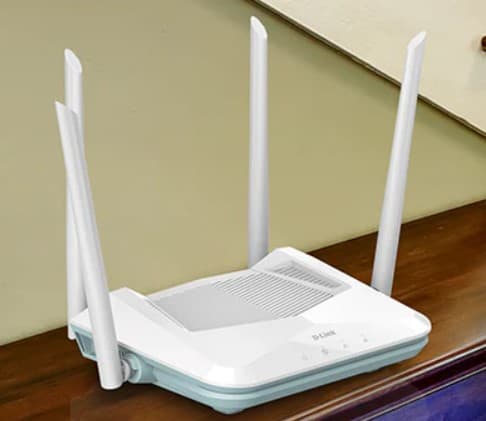
D-Link was founded in 1986 by Ken Kao. It is known for offering a wide range of routers at affordable prices, catering to budget-conscious users. They have achieved a global market presence with reliable and accessible solutions.
Product Lines:
- DIR-8xx Series: Budget-friendly routers for everyday use.
- COVR Series: Mesh Wi-Fi systems for homes with small to medium homes.
- DIR-X Series: Wi-Fi 6 routers for high-speed performance.
Achievements and Innovations:
- D-Link collaborates with McAfee to create a security-focused router designed specifically for smart home users.
- D-Link has also partnered up with Amazon Alexa and Google Assistant.
Pricing & Value:
D-Link routers are budget-friendly, catering to users seeking basic networking needs at an affordable cost, making them an accessible choice for various user requirements. Their price tag can range from around $50 to $200.
Customer Support:
D-Link offers 24/7 customer support over the website. Users can seek assistance for technical issues or inquiries related to their D-Link products via email or phone support.
Pros
- Affordable
- Good performance
- Long range
- Bunch of models to choose from
Cons
- Limited advanced features
- Some model lacks USB ports
Key Notes from the Author
- I did not feature enterprise equipment brands like CISCO, ARUBA Networks, and TRENDnet, as the focus was on consumer-friendly routing devices. You may consider them for WiFi access points and network switches.
- When selecting a router, consider factors like your subscribed internet speed, the size of your space, and the number of devices to be connected. It’s also important to consider the security & other features you need.
- If you’re a professional gamer, you better get a gaming-centric router with a powerful processor and customizations. If you have a lot of smart devices, make sure your router has QoS and MU-MIMO.
Frequently Asked Questions
Who makes the best routers?
There are many great options out there, but ASUS, NETGEAR, and TP-Link are among the top 3 brands that produce high-quality routers with reliable performance and the latest features. They offer a wide range of options to choose from, so you can find one that fits your needs and budget.
Does the router brand matter?
Yes, it matters, as reputed manufacturers often offer better reliability, performance, and after-sale support, ensuring a satisfactory experience.
Who makes the best mesh WiFi?
Some of the best mesh routers on the market are made by NETGEAR, ASUS, Linksys, Eero, and Google. These brands offer seamless coverage throughout your home, eliminating dead zones and providing consistent performance.
Conclusion
In this article, I’ve discussed the top 7 router makers that have consistently earned praise from internet users and experts alike. By now, you must have a comprehensive understanding of which one to go with.
